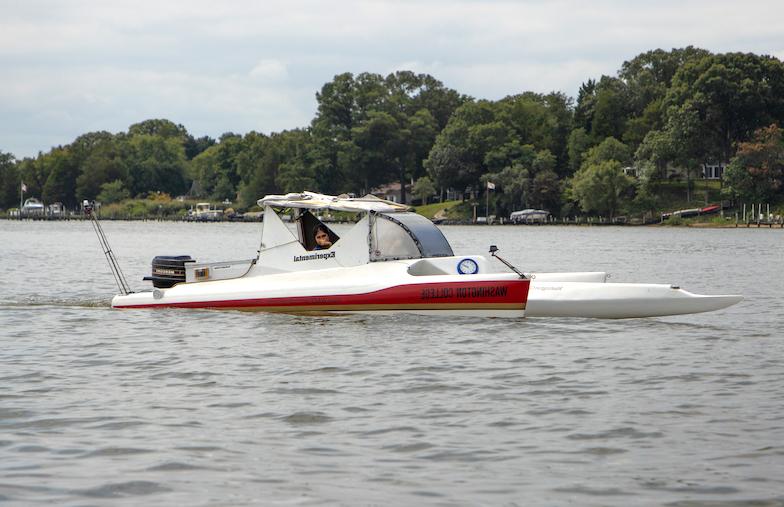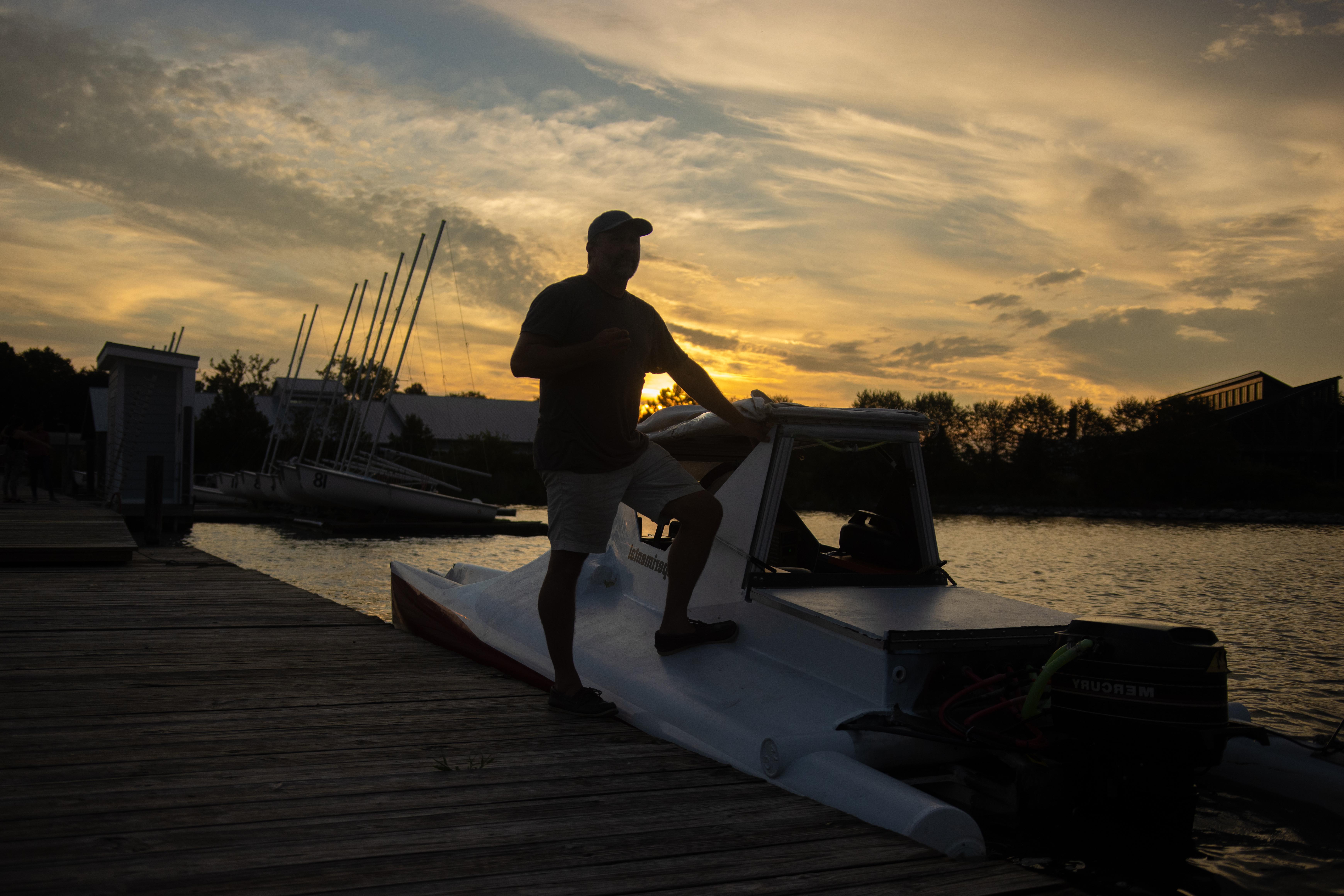Electric Boat Team Sets New World Record
Successful 160-mile attempt sets a new bar for electric boat technology and environmentally friendly waterways.

The Washington College Electric Boat Team has etched their names into the history books by breaking the world record for the longest distance traveled on a single battery charge by an electric boat without using solar. In a feat of student ingenuity and a testament to the potential of environmentally conscious boating, the team successfully set the new record over the Labor Day weekend, beating the record at 2:30 a.m. By the time they ran out of battery six hours later, they had gone nearly 24 miles more than the current Guinness World Record, which was set in 2001 by the Thames Electric Launch Company in England.
The team was comprised of six students and two college staff members and includes:
- David Audette ’26
- Cole Davis ’26
- Douglas Hewes ’26
- Tiyaba Jamil ’27
- Mac Sansbury ’27
- Terrance Vincent ’27
- Brian Palmer, Director of the IDEAWORKS Innovation Center
- Ben Armiger, Waterfront Director
After a grueling but determined 36 hours of navigating the Chester River that began Friday afternoon, they surpassed the previous record of 220.4km (~ 136.95 miles) under cover of darkness early Sunday morning. But the crew wasn't done yet. They continued their journey for another six hours, ultimately setting the new record at a staggering 258.867km (~160.86 miles)!
"This accomplishment is a true testament to the dedication and hard work of our students and faculty," said Palmer. “Our goal was to demonstrate that for many people’s boating needs, electric propulsion is a viable option. With emissions standards for boats so much lower than those set for cars, we want to help people realize that recreational and commercial boaters have a greater impact on the environment than they may realize.”
No stranger to glory on the water, the team recently took first place in the manned category at the Electric Boat Competition sponsored by the U.S. Navy and the American Society of Naval Engineers (ASNE). The boat, which has been built by students under Palmer’s direction, is designed to handle all but the roughest conditions and weather throughout all seasons (as long as there isn’t ice). A life-long sailor with a love of the water, Palmer has raced sailboats competitively for about 20 years on the Chesapeake.
“The team wanted a boat that could meet competitive goals, yet still serve a higher purpose of promoting electric propulsion,” said Palmer, who hopes that being on the team provides students with experiences that will propel them to be leaders in the ever-evolving world of EV propulsion post-graduation.
With this record attempt, the team hopes to showcase the need for, and ease of reaching, lower emissions and fuel use on our sensitive waterways and set a new bar for the future of electric boat technology. By demonstrating the impressive range and efficiency of electric boats, the Washington College team is leading the way towards a cleaner and more sustainable future on our waterways.
Find out more about the team at wacelectricboat.com.

An Active Commitment to Sustainability
Washington College is deeply tied to and committed to sustainability. The campus’s location on the low-lying Eastern Shore of the Chesapeake Bay is among one of the most vulnerable areas to climate change and provides a unique setting to study the effects. The College views its impacts on the natural world through the lens of environmental sustainability and continues to invest in sustainable energies and encourage areas across the institution to generate innovative ideas and practices with the goal of not merely meeting metrics, but to develop a culture of sustainable practices. Find out more about the College’s sustainability efforts at hkange.net/sustainability.
- Dominique Ellis Falcon